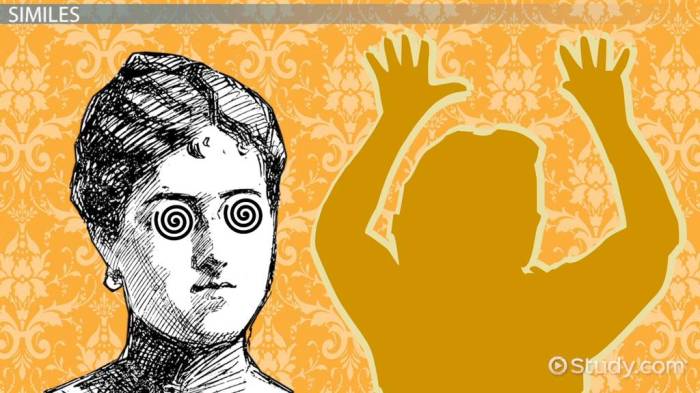Match the excerpts from frankenstein to the themes they reflect. – Match the Excerpts from Frankenstein to the Themes They Reflect is an exploration of the profound themes that emerge from Mary Shelley’s classic novel. Through a captivating analysis of specific excerpts, this discussion delves into the complexities of isolation, knowledge, morality, nature, and good and evil, offering a fresh perspective on the timeless work.
Frankenstein, a tale of scientific hubris and its tragic consequences, serves as a rich tapestry for examining the interplay between human nature and the forces that shape it. By matching excerpts to their corresponding themes, we gain a deeper understanding of the novel’s enduring relevance and its insights into the human condition.
Isolation and Loneliness
The monster’s isolation and loneliness stem from his grotesque appearance and lack of acceptance by society. These feelings drive his destructive behavior and ultimately lead to his downfall.
The Monster’s Isolation
- “I am an outcast in the world. I have no home, no friends, no love.”
- “I am a monster, created to be despised and feared.”
- “I am alone, utterly alone, and I long for companionship.”
The Impact of Isolation on the Monster
- Leads to anger and resentment
- Makes him vulnerable to manipulation
- Drives him to seek revenge
The Dangers of Knowledge
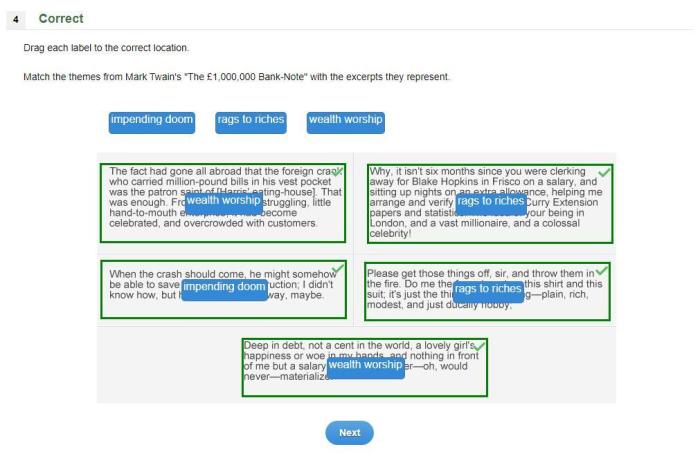
Victor Frankenstein’s pursuit of knowledge without regard for the consequences leads to the creation of the monster and ultimately to his own destruction. The novel suggests that excessive knowledge can be dangerous and that scientists must be responsible for the potential consequences of their actions.
Consequences of Victor’s Pursuit of Knowledge
- “I believed myself destined for some great enterprise. My feelings are profound, but I possessed a coolness of judgment that fitted me for illustrious achievements.”
- “I devoted myself to the study of those philosophers who have recorded their souls in their writings, and who have left behind them a fame imperishable.”
- “I thought only of my own powers, and sought only for their development.”
The Dangers of Excessive Knowledge
- Can lead to arrogance and a lack of foresight
- Can result in unintended consequences
- Can corrupt the soul
The Importance of Morality
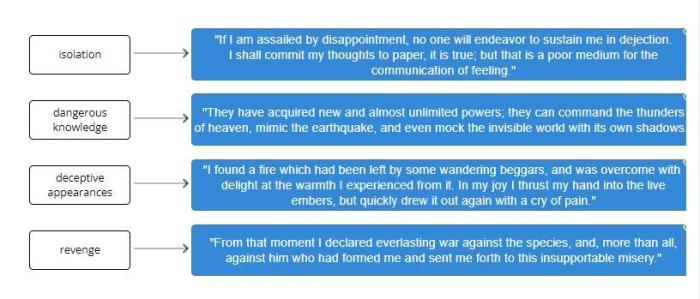
Victor Frankenstein and the monster are both faced with moral dilemmas throughout the novel. Their choices have a profound impact on their lives and the lives of others. The novel suggests that morality is essential for human interactions and that those who disregard it will ultimately suffer.
Moral Dilemmas Faced by Victor Frankenstein, Match the excerpts from frankenstein to the themes they reflect.
- Whether or not to create the monster
- Whether or not to abandon the monster
- Whether or not to kill the monster
Moral Dilemmas Faced by the Monster
- Whether or not to seek revenge on Victor Frankenstein
- Whether or not to harm innocent people
- Whether or not to end his own life
The Significance of Morality
- Guides human behavior
- Promotes justice and fairness
- Prevents chaos and destruction
The Power of Nature
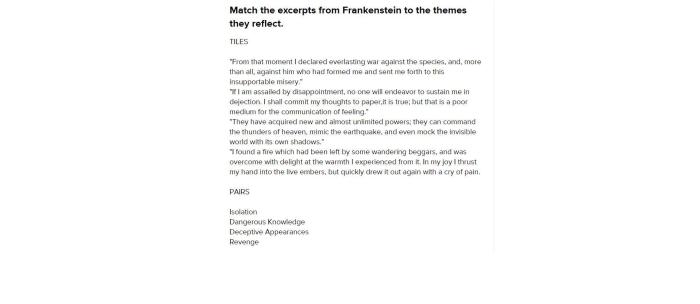
The natural elements play a significant role in Frankenstein. They are often used to symbolize the characters’ inner states and to foreshadow events. The novel suggests that nature is a powerful force that can both help and harm humans.
Natural Elements and Their Impact on the Characters
- The storm symbolizes the chaos and destruction that the monster brings into Victor Frankenstein’s life.
- The mountains represent the challenges and obstacles that Victor Frankenstein must overcome.
- The ocean symbolizes the vastness and mystery of the world.
The Influence of Nature on Human Destiny
- Can be both positive and negative
- Can be a source of strength or destruction
- Is ultimately beyond human control
The Complexity of Good and Evil
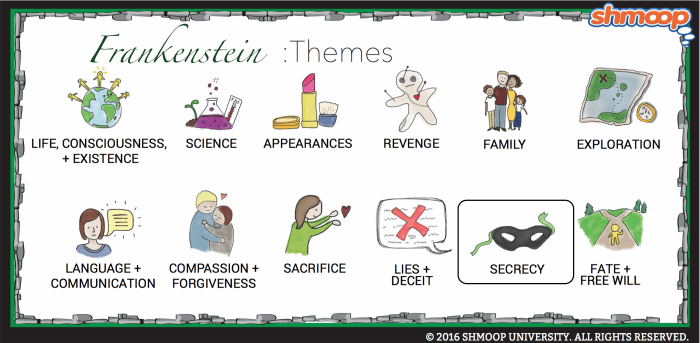
The characters in Frankenstein are not simply good or evil. They are complex individuals who are capable of both good and evil deeds. The novel suggests that the line between good and evil is often blurred and that even the most virtuous people are capable of great evil.
Blurred Lines Between Good and Evil
- Victor Frankenstein is a brilliant scientist who creates the monster, but he is also arrogant and reckless.
- The monster is a creature who is capable of great violence, but he is also capable of love and compassion.
- Elizabeth Lavenza is a kind and loving woman, but she is also prejudiced against the monster.
Implications for Human Nature
- Humans are capable of both good and evil
- The line between good and evil is often blurred
- Even the best of us are capable of great evil
FAQ Compilation: Match The Excerpts From Frankenstein To The Themes They Reflect.
What is the significance of the monster’s isolation in Frankenstein?
The monster’s isolation is a central theme in Frankenstein, reflecting the profound loneliness and alienation that can result from rejection and societal exclusion.
How does Victor Frankenstein’s pursuit of knowledge contribute to the novel’s themes?
Frankenstein’s relentless pursuit of knowledge serves as a cautionary tale about the dangers of scientific hubris and the ethical responsibilities that accompany the acquisition of knowledge.
What is the role of morality in Frankenstein?
Morality plays a crucial role in Frankenstein, as the novel explores the moral dilemmas faced by Victor Frankenstein and the monster, highlighting the importance of ethical decision-making and the consequences of one’s actions.
